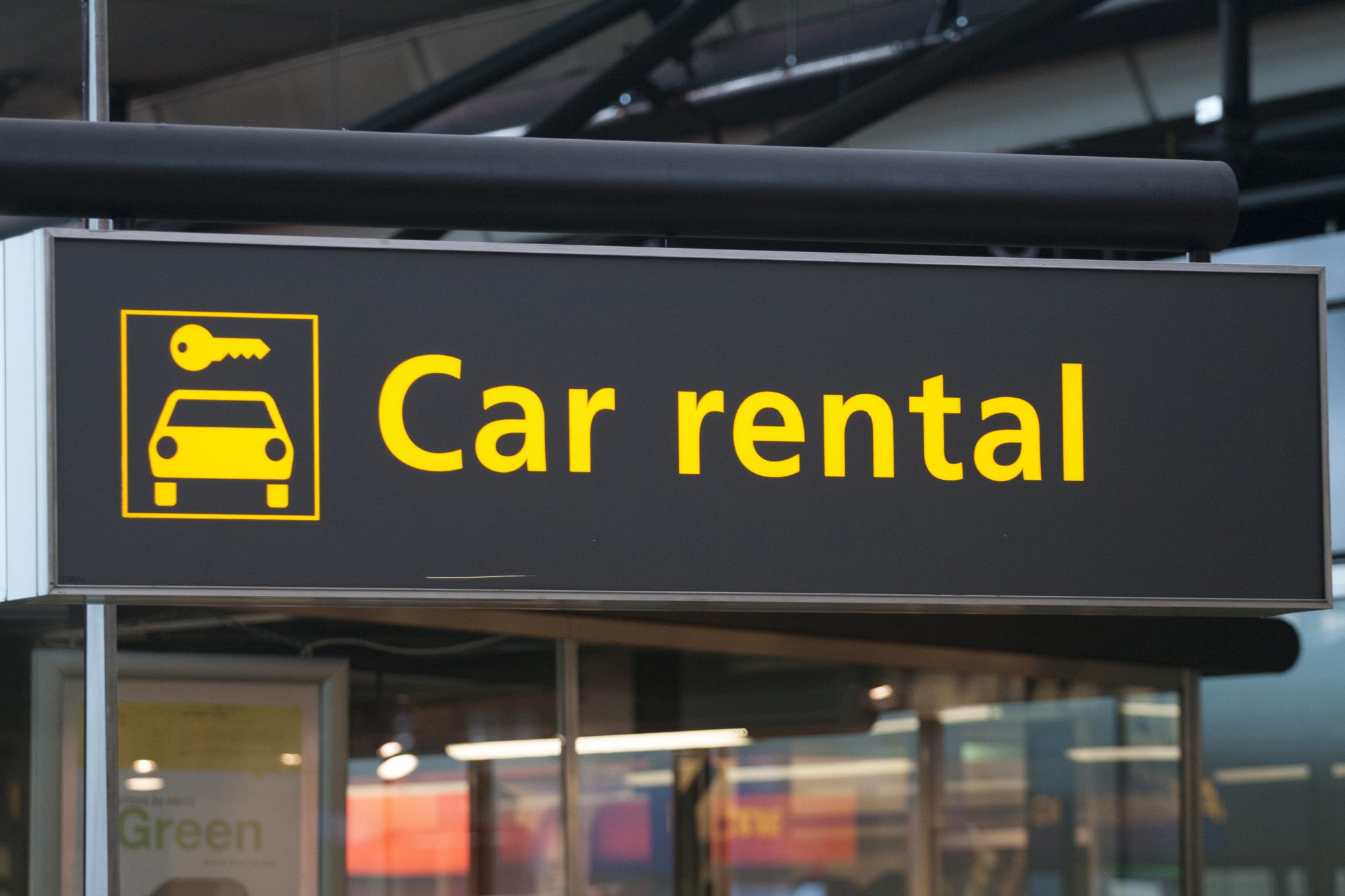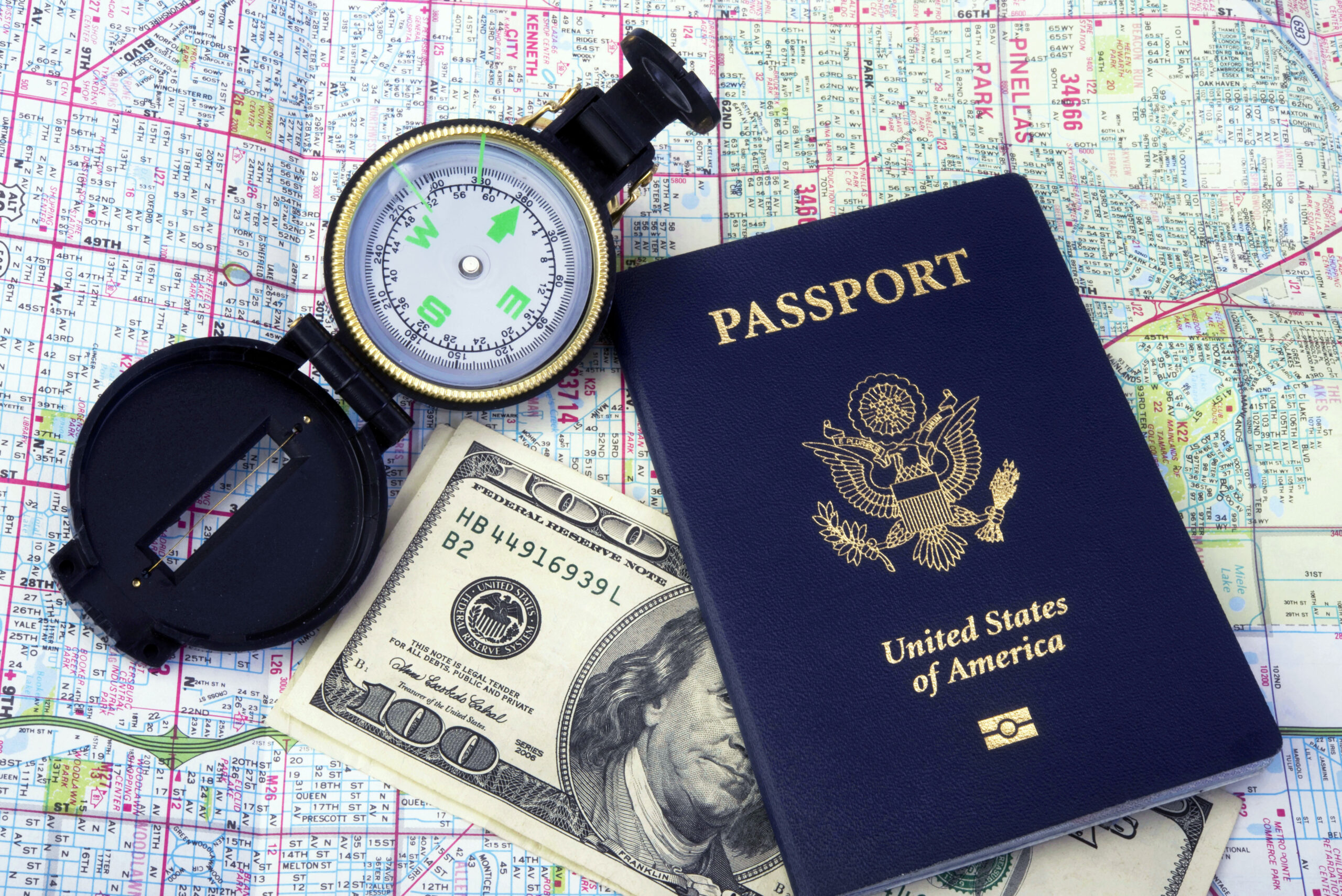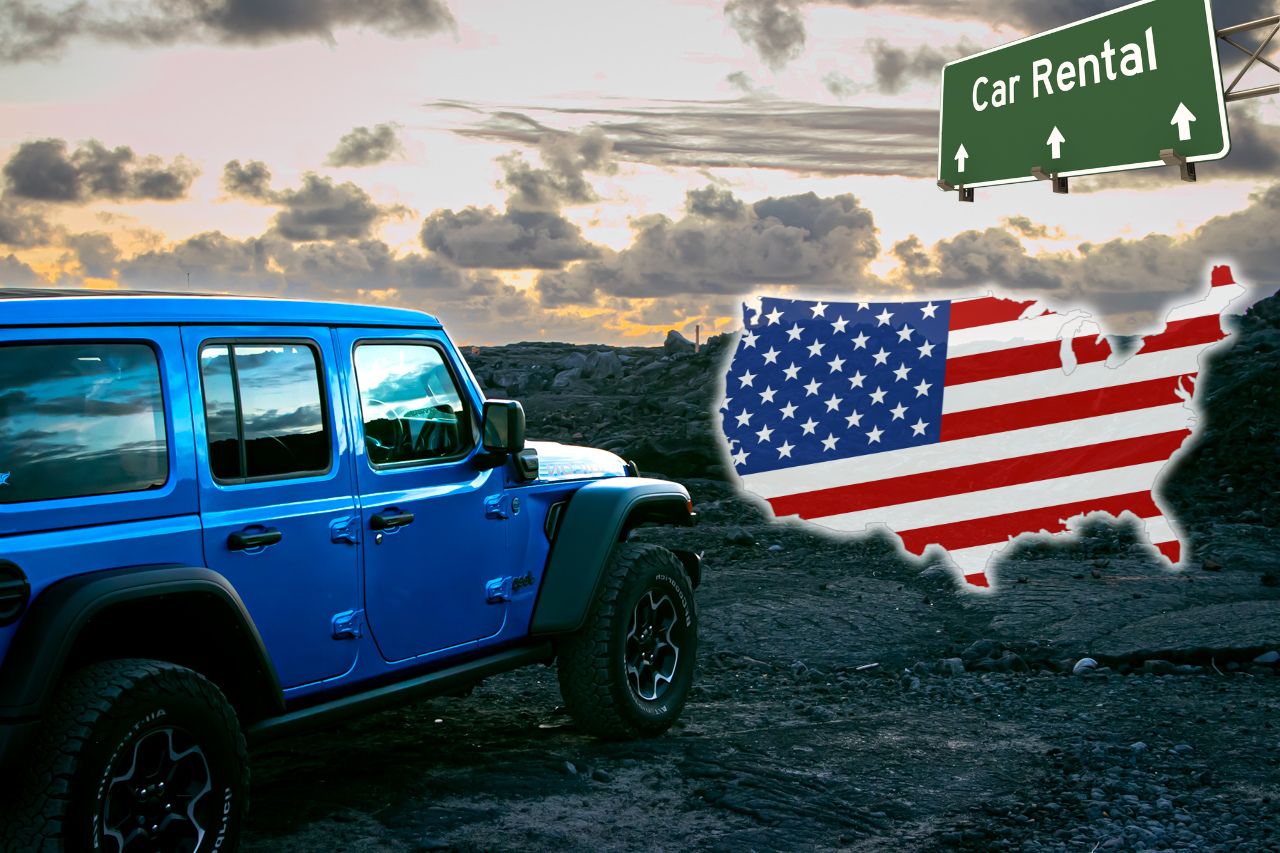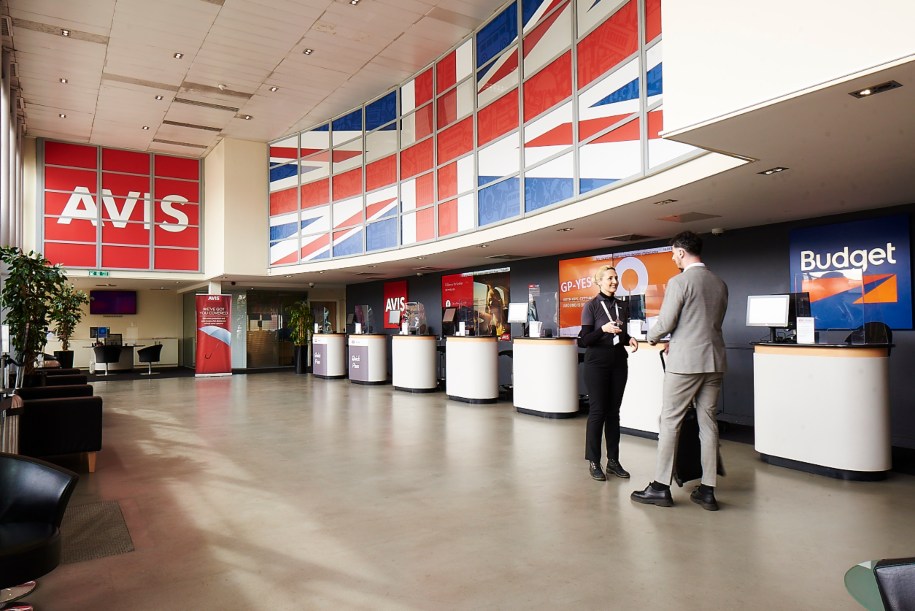Yes. Insurance for a single day is available.
The Ultimate Car Rental Glossary
PUBLISHED ON Jan, 20 2023

CarInsuRent have put together an A-Z guide to assist with car rental terminology. If you have any questions that are not answered in the glossary, feel free to contact us for assistance.
ACRISS (SIPP) Car Code
The ACRISS (SIPP) code is a car coding system. This identifies the features of a car so that you can be sure to get the same standard of car wherever you rent worldwide. Use the key below to assist you when deciding on which car is right for your trip.
Example 1 – CDMN = Compact 4-5 Door Manual Unspecified Drive with No Air-Conditioning.
Example 2 – IWAR = Intermediate Wagon Automatic with Air-Conditioning.
| Class | Type | Transmission | Air-Conditioning |
| M = Mini | B = 2-3 Door | M = Manual Unspecified Drive | R = Unspecified fuel/power with Air-Conditioning |
| N = Mini Elite | C = 2/4 Door | N = Manual 4WD | N = Unspecified fuel/power with no Air-Conditioning |
| E = Economy | D = 4-5 Door | C = Manual AWD | D = Diesel with Air-Conditioning |
| H = Economy Elite | W = Wagon/Estate | A = Automatic Unspecified Drive | Q = Diesel with no Air-Conditioning |
| C = Compact | V = Passenger Van | B = Auto 4WD | H = Hybrid with Air-Conditioning |
| D = Compact Elite | L = Limousine | D = Auto AWD | I = Hybrid with no Air-Conditioning |
| I = Intermediate | S = Sport | E = Electric with Air-Conditioning | |
| J = Intermediate Elite | T = Convertible | C = Electric with no Air-Conditioning | |
| S = Standard | F = SUV | L = LPG/Compressed Gas with Air-Conditioning | |
| R = Standard Elite | J = Open Air Terrain | S = LPG/Compressed Gas with no Air-Conditioning | |
| F = Full Size | X = Special | A = Hydrogen with Air-Conditioning | |
| G = Full Size Elite | P = Pick up Regular Cab | B = Hydrogen with no Air-Conditioning | |
| P = Premium | Q = Pick up Extended Cab | M = Multi Fuel/Power with Air-Conditioning | |
| U = Premium Elite | Z = Special Offer Car | F = Multi Fuel/Power with no Air-Conditioning | |
| L = Luxury | E = Coupe | V = Petrol with Air-Conditioning | |
| W = Luxury Elite | M = Monospace | Z = Petrol with no Air-Conditioning | |
| O = Oversize | R = Recreational Vehicle | U = Ethanol with Air-Conditioning | |
| X = Special | H = Motorhome | X = Ethanol with no Air-Conditioning | |
| Y = 2 Wheel Vehicle | |||
| N = Roadster | |||
| G = Crossover | |||
| K = Commercial Van/Truck |
Additional Driver
Additional to the main driver, registered and listed on the Rental Agreement.
Additional Liability Insurance (ALI)
Provides additional protection for bodily injury or death plus property damage.
Additional Equipment
Based on availability at your pick-up location, you may be able to request items including infant and child booster seats or ski racks for a nominal additional fee.
Airport Fee
Charge applied by airport authorities for terminal and off terminal locations. In most cases, this charge is also applied to additional charges, such as one way fees, fuel option, child seat rental etc which are not included in the daily rate and are paid at the counter.
Child Seat Surcharge
You can request a child seat with your booking. Keep in mind there is limited availability, so make sure you supply all relevant information as soon as possible.
Collision Damage Waiver (CDW)
Covers the rental vehicle in the event of accidental damage to the rental vehicle other than by theft or attempted theft. An excess usually applies and the amount will vary depending on the pick up country and/or vehicle type.
Concession Recovery Fee (CRF)
Airports charge rental car companies for the privilege of doing business on site, and the rental companies pass this percentage-based fee on to the renter.
Contract Modification Fee
If the rental car company had to change your contract after you’ve picked up the car, you may see this fee. For example, if you return your rental car at a time that is earlier or later than what is on your contract, the company may lose revenue as a result.
Excess
The amount the client is responsible for in the event the rental vehicle is damaged (whether the driver is at fault or not) or stolen.
Excess Reduction (ER) / Excess Waiver
Optional charge offered by the car rental company to reduce or waive the insurance excess in the event of an insurance claim against damage or theft. CarInsuRent strongly recommends travellers purchase Excess Waiver Insurance to cover themselves.
Loss Damage Waiver (LDW)
Covers the rental vehicle in the event of accidental damage and theft. An excess usually applies and the amount will vary depending on the pick up country and/or vehicle type.
Loss of Use
This fee replaces the daily income the rental company loses while a damaged car is being repaired.
One Way Fee
This fee is imposed to cover the costs of returning the vehicle back to the originating location. Some countries charge for one way fees between airport and downtown locations within the same city.
Personal Accident Insurance (PAI)
Covers the driver and additional passengers of the rental vehicle for personal and physical injuries incurred in an accident.
Premium Location Surcharge/Location Service Charge
Charge applied by car rental companies at selected downtown and railway locations. This additional item also includes the Airport Fee. In most cases, this charge is also applied to additional charges, such as one way fees, fuel option, child seat rental etc which are not included in the daily rate and are paid at the counter.
Rental Period
Your car rental period commencing at the time of collection through to the drop off time. Rental periods are based on 24 hours periods from the time of pick up, excluding European Leasing where it is based on calendar days.
Roadside Assistance
This optional coverage provides roadside assistance in case you lock yourself out of the car, lose your key, have a flat tire or a dead battery, or need a tow.
Sealed Road
A road sealed with a hard material such as tar, bitumen or concrete.
Security Deposit
Amount frozen on the client’s credit card at time of collection. The amount frozen is usually the full insurance excess amount. However, if an insurance excess is not applicable or the full excess is not frozen then an amount may still be frozen for incidentals such as fuel bond, optional charges, loss of keys etc.
Senior Driver Surcharge
Surcharge payable by senior drivers over &/or between a specific age.
Supplemental Liability Insurance (SLI)
“SLI” is short for Supplemental Liability Insurance, and this is a type of car hire insurance that gives you third party liability cover. That means, if you are involved in an accident with your hire car, you (the driver) are insured against bodily injury and property damage to a third party up to a certain monetary value.
Theft Protection (TP)
Covers the rental vehicle in the event of theft, attempted theft or vandalism. An excess usually applies and the amount will vary depending on the pick up country and/or vehicle type.
Third Party
Provides cover for public liability and is subject to the car rental company’s terms and conditions on the rental agreement.
Vehicle Licensing Fee/Vehicle Road Registration Fee
Government imposed levy for each rental car in the car provider’s fleet. Charge to partially recover the vehicle registration costs.
Young Driver Surcharge
For drivers under 25, suppliers will charge an additional daily surcharge. The amount charged differs depending on the car rental company.
Travel Tips and Guides

Navigate the World: How to Get Your AAA's International Driving Permit Effortlessly
Gil Farkash

Top Tips for Stress-Free Renting a Car in USA: Your Ultimate Road Trip Guide
Gil Farkash

Essential Tips for Renting a Car in UK: Your Complete Guide
Gil Farkash
Frequently Asked Questions (FAQ)
No. We provide a single journey plan. You are covered from the time you pick up the rental car up to the time you return it or on the last date written on your Certificate of Insurance, whichever comes first.
No. You should purchase a policy before starting your travel.
Find the answers you’re looking for to the most frequently asked car hire insurance questions as well as other questions relating to our products and services.
